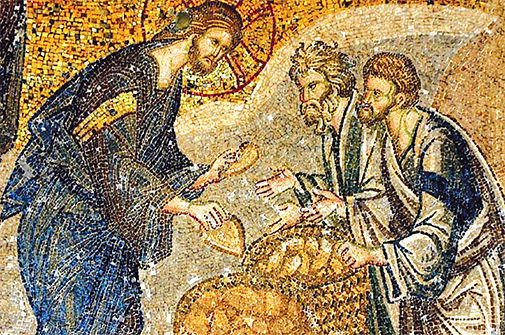My youth had both its strengths and its weaknesses. I grew up on a farm in heart of the Canadian prairies, a second-generation immigrant. Our family was a large one and the small farm we lived on gave us enough to live on, though just enough. There were never any extras.
We were never hungry or genuinely poor, but we lived in a conscriptive frugality. You were given what you needed, but rarely anything extra. You got just one portion of the main course at a meal and one dessert because these had to be measured out in a way that left enough for everyone.
And I lived happily inside that, taking for granted that this was the way life was meant to be, assuming that all resources are limited and you shouldn't ever be asking for or taking more than what's necessary.
Such a background has its strengths: You grow into adulthood with the sense that there's no free lunch, you need to earn what you eat. You know, too, that you shouldn't be taking more than your share because the goods of this world are limited and meant to be shared with everyone. If you take more than your share, than there won't be enough for everyone. Resources are limited, so if anyone gets too much, someone gets too little.
But such an upbringing also has its downside: When everything has to be measured out to ensure that there's enough for everyone and you live with the underlying fear that there might not be enough, you can easily end up with a sense of scarcity rather than of abundance and an inclination towards stinginess rather than generosity.
A mindset of scarcity rather than of abundance debilitates us in several ways. First, it tends to leave us standing before life's abundance too timid to celebrate life with any exuberance. Life is too equated with frugality and you are forever haunted by guilt in the face of life's goodness and, especially, before any experience of luxury, not unlike the discomfort felt by Jesus' disciples when they are face to face with a prodigal woman lavishly anointing Jesus' feet with expensive perfume.
Inside a mindset of scarcity there's the perennial temptation to falsely idealize suffering and poverty and have them replace grace and abundance as God's real gift to us. More crippling still is the fact that a sense of scarcity too often gives us a concept of a God who is limited and who is frugal rather than prodigal. But that isn't the God of Jesus.
Allow me just one, rather pointed, illustration: A seminary professor whom I know shares this story. He's been teaching seminarians for many years and in recent years, when teaching about the sacrament of penance, is frequently asked this question, often as the first question in the class: "When can I refuse absolution? When do I not grant forgiveness?"
The anxiety expressed here is not, I believe, triggered by a need for power but by a very sincere fear that we have to be rather scrupulous in handing out God's mercy, that we shouldn't be handing out cheap grace. Undergirding that fear, I believe, is the unconscious notion that God also works out of a sense of scarcity rather than of abundance, and that God's mercies, like our own resources, are limited and need to be measured out very sparingly.
But that's not the God whom Jesus incarnated and revealed. The Gospels rather reveal a God who is prodigal beyond all our standards and beyond our imagination. The God of the Gospels is the Sower who, because he has unlimited seeds, scatters those seeds everywhere without discrimination: on the road, in the ditches, in the thorn bushes, in bad soil and in good soil.
Moreover, that prodigal Sower is also the God of creation, that is, the God who has created and continues to create hundreds of billions of galaxies and billions and billions of human beings. And this prodigal God gives us this perennial invitation: Come to the waters, come without money, come without merit because God's gift is as plentiful, available and as free as the air we breathe.
The Gospel of Luke recounts an incident where Peter, just after he had spent an entire night fishing and had caught nothing, is told to cast out his net one more time and, this time, Peter's net catches so many fish that the weight of the catch threatens to sink two boats. Peter reacts by falling on his knees and confessing his sinfulness.
But, as the text makes clear, that's not the proper reaction in the face of over-abundance. Peter is wrongly fearful, in effect, wanting that over-abundance to go away, when what Jesus wants from him in the face of that over-abundance is to go out to the world and share with others that unimaginable grace.
What God's over-abundance is meant to teach us is that, in the face of limitless grace, we may never refuse anyone absolution.
Oblate of Mary Immaculate Father Ronald Rolheiser is a specialist in the field of spirituality and systematic theology. His website is www.ronrolheiser.com.

